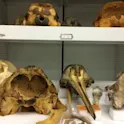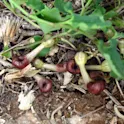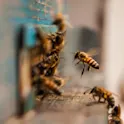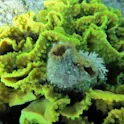Dr Tal Gordon: ‘During one of my dives, an animal I collected ejected its digestive system at me’
By Mischa Dijkstra, Frontiers science writer / Tal Gordon, George S Wise Faculty of Life Sciences, Tel-Aviv University, Israel Tal Gordon during one of her research dives. Image credit: Tal Zaquin Dr Tal Gordon is a zoologist and molecular biologist interested in the molecular basis of regeneration. She grew up in Eilat (Israel) close to the Red Sea and spent much of her childhood by the sea. Her recent PhD thesis at Tel-Aviv University focused on the development and regeneration in ascidians (sea squirts, a non-monophyletic subdivision of tunicates), in particular Polycarpa mytiligera. She discovered that this species has unique regeneration abilities, which makes it an excellent new model system to study regeneration and stem cells. One key result, recently published in Frontiers in Cell and Developmental Biology, is that P. mytiligera can regenerate any missing body part, including its entire nervous system, by reactivation of evolutionarily conserved developmental programs. Gordon is currently a postdoctoral fellow in the laboratory of Dr Omri Wurtzel at Tel-Aviv University, focusing on the molecular basis of regeneration. In her present research, she uses comparative genomics to unravel regulatory pathways that facilitate ascidian regeneration. As part of our Frontier Scientist series, she told us about […]














